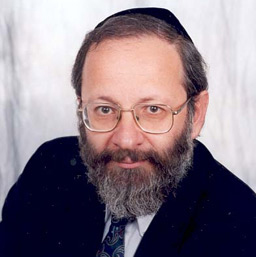For nearly 60 years, since the nightmarish epoch of the Holocaust, a preoccupation of the international legal system has been to effect a measure of justice, however broadly defined. On the one hand, this has involved bringing perpetrators to justice, whether in international or national tribunals. It has also meant ensuring that restitution is made, and reparations and compensation paid, to survivor victims, as well as to their heirs and the heirs of those who perished.
Often, that justice requires that court proceedings take place. Those proceedings may be at the criminal level, in cases such as the Nuremberg war crimes trials, or the trials in domestic courts of perpetrators such as Adolf Eichmann and Maurice Papon. At the civil level, it encompasses cases by individuals pursuing personal claims, as well as class action suits in the United States.
The fact that court proceedings are often required makes the obtaining of justice subject to, among other things, the laws of evidence: decisions have to be made by judges, based on credible, accurate testimony. This, in turn, raises difficulties. Court testimony, by its very nature, is given by human beings. By definition, human beings are endowed with human frailties—in particular, so far as the laws of evidence are concerned, the frailties of memory.
In the case of Holocaust-era testimony, the problems are compounded by the effluxion of time, with consequent deterioration of memory. The extreme stress under which victims suffered, and the effects of that trauma, also affect the ability to recollect.
Along the continuum from one extreme to the other is the eliding from belief to recollection: experiences that have been heard to be described can become so vivid that they become assimilated into the maelstrom of actual memory. Problems of recollection have been seized upon by Holocaust deniers to discredit survivor testimony, as inter alia unreliable.
Join Harry Reicher, a leading authority on Holocaust Law, as he discusses the real issue of how to deal with testimony of witnesses who are not dishonest, and certainly not “lying,” but whose testimony demonstrates gaps, as well as the ravages of time and stress, not to mention normal human frailties.
Harry Reicher has argued cases before a range of courts and tribunals, including the High Court of Australia. These have resulted in numerous precedent-setting judgments in international human rights law and international environmental law.
As an academic, Reicher has taught at law schools in Australia and the United States. At the University of Pennsylvania's Law School, he has pioneered the new academic discipline of law and the Holocaust. He also teaches international human rights, which includes a special segment on freedom of religion in international law. Penn Law honored him in 2004 with the first Adjunct Teaching Award for courses which his students acknowledged as among the "most incredible" ever taken.
As a lawyer, Harry Reicher has been involved in preparing and arguing landmark cases in international human rights and environmental law in Australia and England. He has been a consultant to the International Monetary Fund in Washington, DC. Many of his cases now involve matters of Holocaust-era restitution and litigation.



